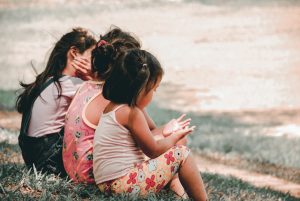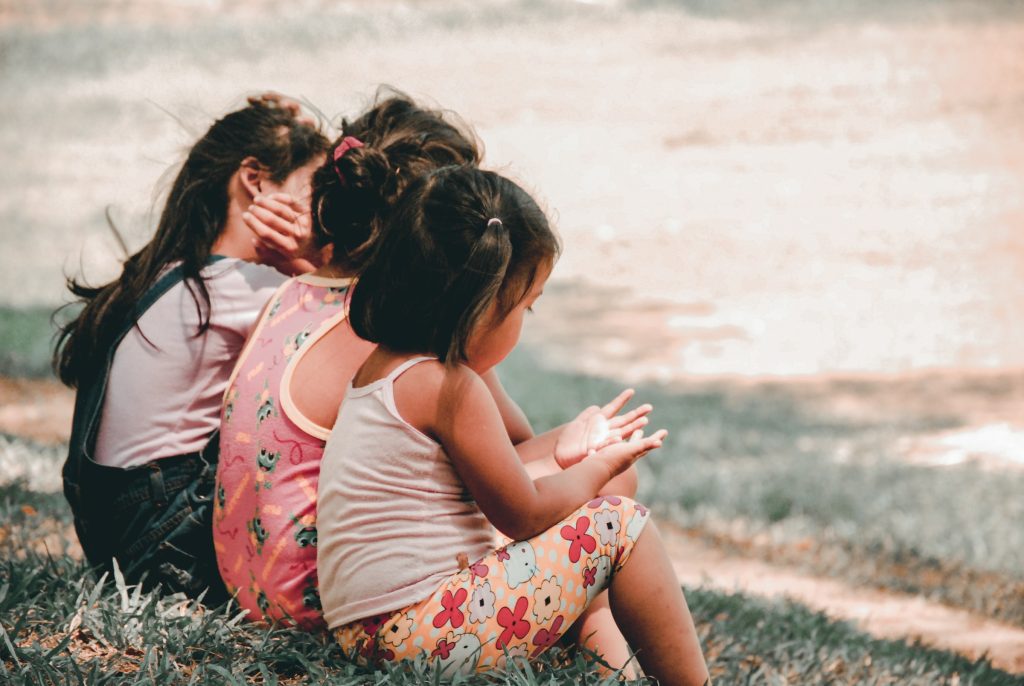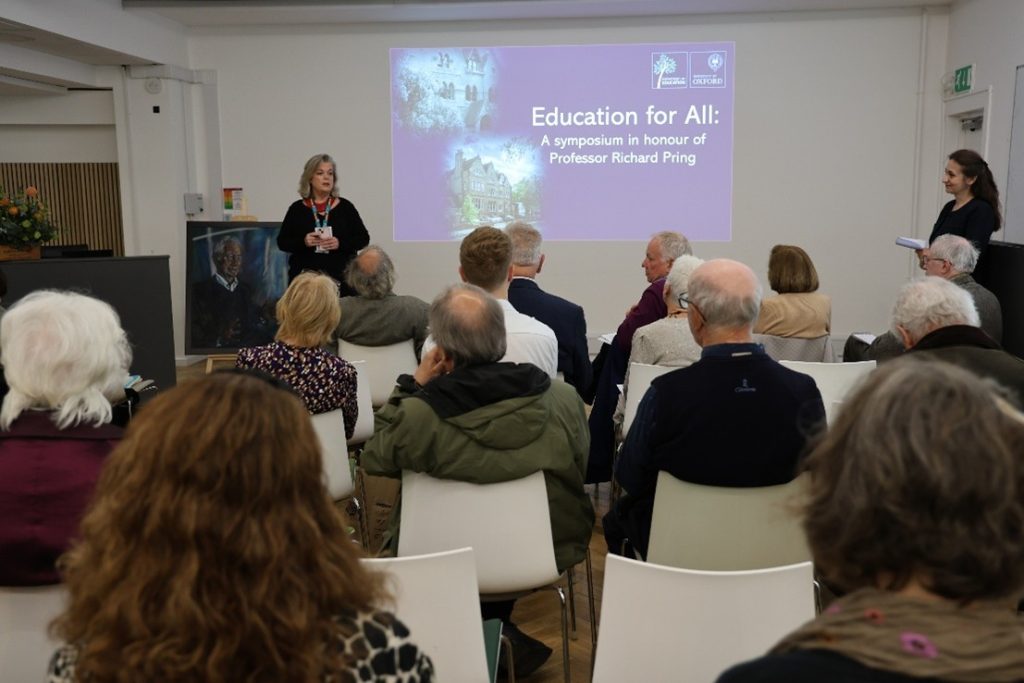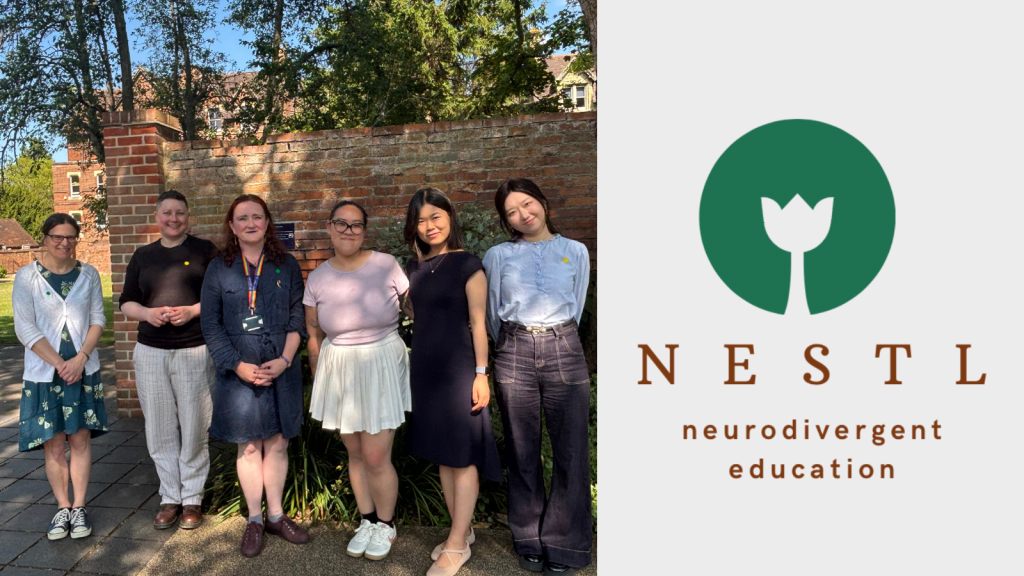The Department of Education’s Public Seminar Series ‘The Rights of the Child’ launches on 24 January. ‘The Rights of the Child’ is a seminar series interrogating the concept of rights of the child and implications for research, policy and practice.
The public seminars will be run online over Zoom. Please follow the event links in the Seminar Series programme below for more information on each event and to register for each seminar.
Seminar Series background
‘The Rights of the Child’ seminar series is co-convened by three women (Nika Nazari, We’am Hamdan, and Minoli Wijetunga) from countries in various stages of conflict and disarray – Iran, Palestine, and Sri Lanka, alongside Professor Leon Feinstein of the REES Centre. The seminar series is testimony to their lived experiences, their versions of the worlds they occupy. It is their attempt to bring to light issues, stories, and perspectives we think must be heard when considering the effectiveness of social policy and other mechanisms for the implementation, realisation, delivery or actualisation of the rights of children.
The story of child’s rights is often thought of as a story of liberation: from labour, from not having a voice and, as Abraham Lincoln said, of being a slave to their parents. This particular way of viewing the historical child through a modern lens provides only a partial perspective to the life of a child, as well as to the society that once was.
Today, the most widely defined idea of the child and childhood is found in the United Nations Convention on the Rights of the Child (UNCRC). Since it was ratified in November 1989, 196 countries have signed up to the UNCRC. The 54 articles aim to respect every child with any status, considering them as individuals entitled to ‘civil, political, economic, social and cultural rights.’ According to this convention, there must be no discrimination, and all must work for the best interest of the child, while hearing their voices and helping them survive and develop in life.
To solve the real-world issues in children’s lives, UNCRC considers the importance of every right and recognizes the role of different actors, such as parents and the governments, in implementing such rights to give children the voice and existence that they were deprived of before. Every context may work differently based on their specific conditions, cultures, and ideologies of childhood in delivering children’s rights. The power dynamics within each environment render the process of delivery to be messy, long and imperfect, particularly in areas of conflict or poverty. The outcomes of this are evident in the persistence of issues of poverty, violence, poor provision for migrant children and lags in educational attainment, amongst many other challenges.
By itself, an international system and treaty, such as UNCRC, cannot ensure the welfare of all children and young people. We think that more cognisance must be made of diversity in culture and context. The many crises around the world in the realisation of the rights of children demand that the question be asked of how the rights of children are best realised.
This seminar series brings together scholars and practitioners, activists and others to discuss these issues and consider the implications for research, policy and practice in education and children’s social policy.
Seminars Series programme
The UNCRC – roles and effectiveness, 24 January 5-6.30pm (UK time)
Today, the United Nations Convention on the Rights of the Child (UNCRC) represents a definition of childhood and children’s rights, broadly known by different institutions and actors who study child’s rights and development. As the most widely-ratified international human rights treaty, we are interested in investigating UNCRC’s roles and impacts on how children experience childhood nowadays. This panel presents views on the goals and prospects of this Convention, and it also brings diverse perspectives on the effectiveness of UNCRC and its sufficiency in policy and practice within different contexts.
Child in the wild – children in the digitising/digitised world. 7 February, 5.30-7pm (UK time)
In early 2021, the UN Committee on the Rights of the Child adopted General Comment 25 which binds States to acknowledge that children’s rights apply to the digital realm, and to take the necessary steps to ensure that these rights are protected. While the General Comment 25 can be recognised as the first vital step towards creating a set of regulations that take the digital world into account when it comes to the rights of the child, it is important to see it as a first step. The existing formulation of the UNCRC may not be sufficient to address the issues and concerns of the child in a digitised world. The UNCRC was written for a society different from the one that exists now, and will soon come to exist with regard to the digital. This seminar brings together academics, researchers, and activists who have been working in the area of children and the digital world, to discuss the possibilities and the challenges that are emerging.
Child on the edge – plight of children in fragile and conflict states. 14 February, 5- 6.30pm (UK time)
Article 19 of the UNCRC addresses violence against children, emphasising that State Parties must have proper laws in place to prohibit violence, and requiring States to implement administrative, social and educational measures to protect children. All forms of violence, both physical and mental, fall under article 19. In 2019, 1.6 billion children (69%) were living in a conflict-affected country. Approximately, 426 million children (over one in six) were living in a conflict zone in 2019. This constitutes a 2% increase from 2018. The ramifications of conflict on the implementation of UNCRC and other treaties aiming at protecting the rights of children are worthy of investigation as they delve into the issue of power dynamics. This seminar discusses the state of the child in conflict states, from the point of view of different stakeholders. The speakers include researchers, government officials, and civil society/NGOs from a range of conflict states.
What is a child? 21 February, 5-6.30pm (UK time)
Article 1 of the UNCRC defines a child as an individual below the age of 18 years. This definition is now used and adapted across countries and contexts. However, this definition of a child is specific to the 21st century; different eras in history defined the child in different ways. Furthermore, while the UNCRC identifies this definition of the child as universal, different cultures (used to) define the child and childhood in different ways. This seminar looks at different definitions of the child as understood through histories and cultures to interrogate the nature of ‘child’ and how it is socially dependent.
Child as a learner – Creative pedagogies. 28 February, 5-6.30pm (UK time)
In Article 29(a), UNCRC recognizes the goals of education as it ‘develops every child’s personality, talents and abilities to the full.’ To meet this objective within different contexts, educators might rethink the conventional forms of learning to support every learner’s potential based on their values and needs within their cultures. This panel investigates various views on children’s right to education and culturally-responsive pedagogies. It also brings examples of creative pedagogies in contexts, which have attempted to develop children’s talents and personalities through an unconventional form of education.











